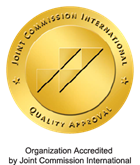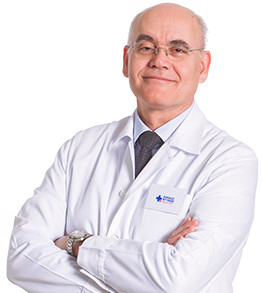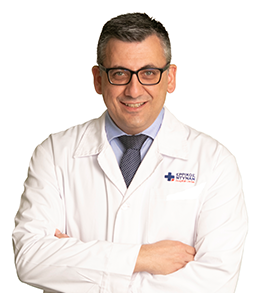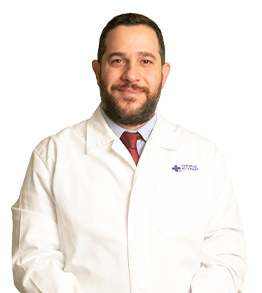
Vascular Access Center
In end-stage chronic renal disease, 85-90% of renal function has been lost, leaving the kidney unable to perform its task, i.e., the clearance of harmful substances from the blood. Therefore, renal function restoration is absolutely necessary.
The most common method of replacing renal function is hemodialysis. In this case, the patient with the help of a machine – artificial kidney (AK) - that imitates/replaces the renal function, eliminates harmful metabolic products and maintains fluid balance.
In order for the patient to be able to start hemodialysis, the vascular surgeon must intervene by creating the vascular access, i.e., the creation of a “path” (fistula) through which the patient’s blood passes and is cleaned in the hemodialysis machine (AK).
At Henry Dunant Hospital Center operates the first Vascular Access Center, where interdisciplinary specialized treatment is provided to patients on dialysis.
Call Center: (+30)210-6972000
Responsible:
Chronopoulos Anastasios,
Chatzantonis Georgios
Activities
At the Henry Dunant Vascular Access Center, the patient is monitored by vascular surgeons specialized in vascular accesses. The surgeons, in collaboration with nephrologists, the Kidney Dialysis Unit and the support of a fully equipped radiology laboratory, provide patients on dialysis with high-quality services, such as creating, caring for and monitoring of vascular access.
Specifically, we are active in the following:
- Creation of vascular access (even intravascular)
- Follow-up of patients
- Immediate correction of a dysfunctional fistula, etc.
- Special outpatient clinics only for patients on dialysis
- Support and counseling program for new dialysis patients.
The operation of a special vascular access center, similar to corresponding centers in United States of America and Europe is of utmost importance. This center provides highly quality services to patients with renal disease that are available 24 hours a day, 7 days a week, 365 days a year, in order to provide them with better treatment and health outcomes, as both mortality and morbidity, as well as the risk of infections and hospitalizations of patients with vascular access, are reduced.
Equipment
- Kidney Dialysis Unit equipped with modern AK machines
- Radiology laboratory with modern ultrasound machines
- Portable ultrasound machine that allows the surgeons to study the patient on-site (at the patient’s bedside in the operating room, etc.)
- Surgery equipped with a full range of grafts and materials for the endovascular repair of a vascular access (fistula)
- Angiography suite with 3D imaging capability




